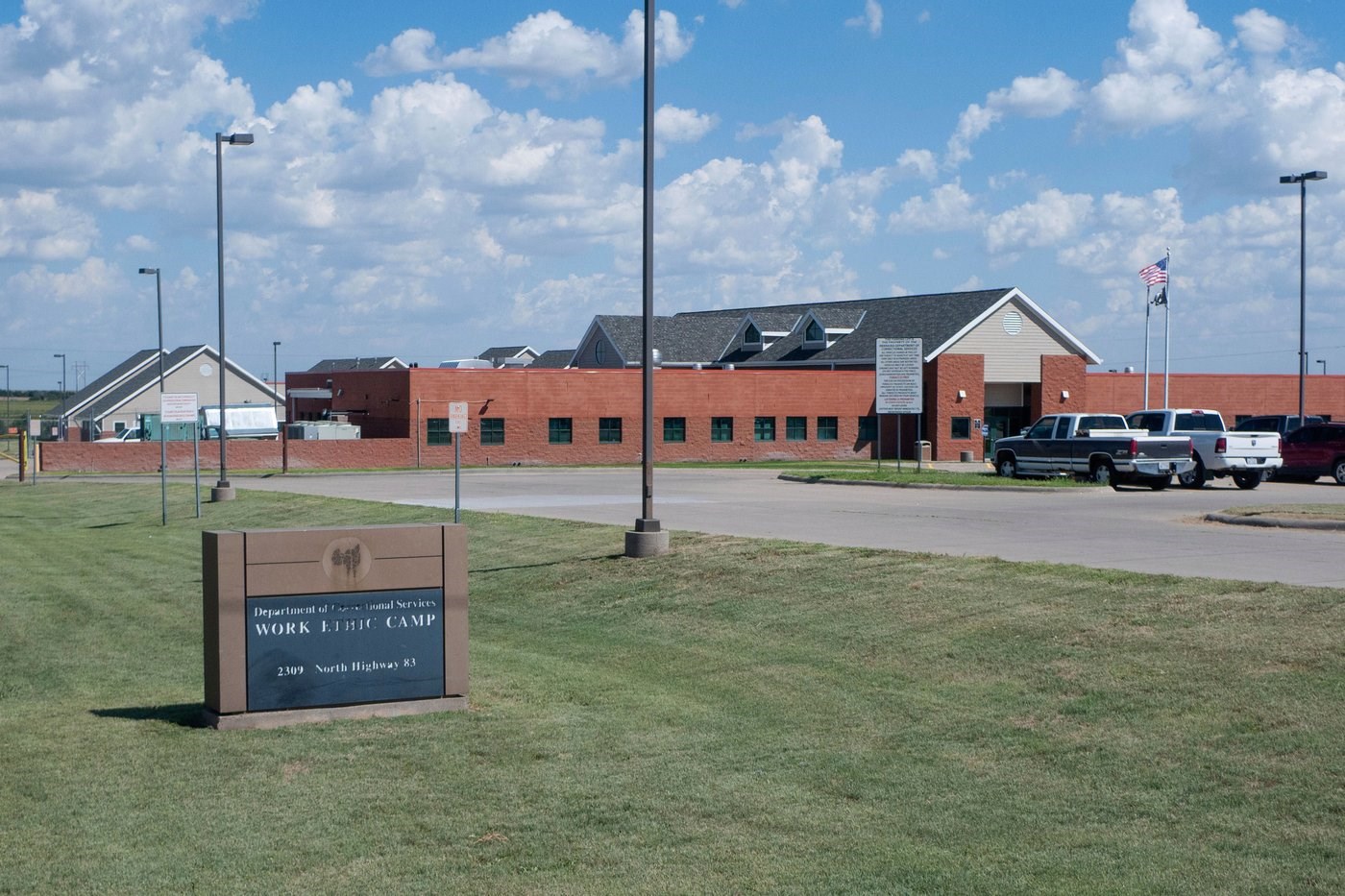Margery A. Beck

The McCook Work Ethic Camp is seen in McCook, Neb., on Aug. 20, 2025. (Brigham Larington/McCook Gazette via AP)
September 12, 2025 - 10:05 AM
OMAHA, Neb. (AP) — No formal agreement has been signed to convert a remote state prison in Nebraska into the latest immigration detention center for President Donald Trump’s sweeping crackdown, more than three weeks since the governor announced the plan and as lawmakers and nearby residents grow increasingly skeptical.
Corrections officials insist the facility could start housing hundreds of male detainees next month, with classrooms and other spaces at the McCook Work Ethic Camp retrofitted for beds. However, lawmakers briefed last week by state officials said they got few concrete answers about cost, staffing and oversight.
“There was more unanswered questions than answered questions in terms of what they know,” state Sen. Wendy DeBoer said.
Officials in the city of McCook were caught off guard in mid-August when Republican Gov. Jim Pillen announced that the minimum-security prison in rural southwest Nebraska would serve as a Midwest hub for immigration detainees. Pillen and federal officials dubbed it the “Cornhusker Clink," in line with other alliterative detention centers such as “ Alligator Alcatraz ” in Florida and the “ Speedway Slammer ” in Indiana.
“City leaders were given absolutely no choice in the matter,” said Mike O’Dell, publisher of the local newspaper, the McCook Gazette.
McCook is the seat of Red Willow County where voters favored Trump in the 2024 election by nearly 80%. Most of them likely support the president's immigration crackdown, O'Dell said. However, the city of around 7,000 has also grown accustomed to the camp's low-level offenders working on roads, in parks, county and city offices and even local schools.
“People here have gotten to know them in many cases,” O'Dell said. “I think there is a feeling here that people want to know where these folks are going to end up and that they'll be OK.”
The Work Ethic Camp first opened in 2001 and currently houses around 155 inmates who participate in education, treatment and work programs to help them transition to life outside prison. State leaders often praise it as success story for reducing prisoner recidivism.
Some lawmakers have complained that Pillen acted rashly in offering up the facility, noting that the state's prison system is already one of the nation's most overcrowded and perpetually understaffed. The governor's office and state prison officials met with members of the Legislature's Judiciary Committee last week to answer questions about the transfer.
What the lawmakers got, several said, were estimates and speculation.
Lawmakers were told it was the governor's office that approached federal officials with the offer after Trump “made a generalized, widespread call that we need more room or something for detainees,” said DeBoer, a Democrat in the officially nonpartisan Legislature.
Lawmakers were also told the facility — which was designed to house around 100 but is currently outfitted to hold twice that — would house between 200 and 300 detainees. The prison's current staff of 97 is to be retrained and stay on.
The costs of the transition would be borne by the state, with the expectation that the federal government would reimburse that cost, DeBoer recalled.
A formal agreement between the state and federal agency had yet to be signed by Friday.
Asked how much the state is anticipated to spend on the conversion, the agency said "that number has not yet been determined," but that any state expenditures would be reimbursed. The state plans to hire additional staffers for the center, the agency said.
A letter signed by 13 lawmakers called into question whether Pillen had the authority to unilaterally transfer use of a state prison to federal authorities without legislative approval.
To that end, state Sen. Terrell McKinney — chairman of the Legislature's Urban Affairs Committee and a vocal critic of Nebraska's overcrowded prison system — convened a public hearing Friday to seek answers from Pillen's office and state corrections officials, citing concerns over building code violations that fall under the committee's purview.
"How can you take a facility that was built for 125 people and take that to a capacity of 200 to 300 people without creating, you know, a security risk?” McKinney asked.
Pillen maintains state law gives him the authority to make the move, saying the Department of Correctional Services falls under the umbrella of the executive branch. He and state prison officials declined to show up at Friday's hearing.
But dozens of Nebraska residents did attend, with most of them opposed to the new ICE detention center.
News from © The Associated Press, 2025